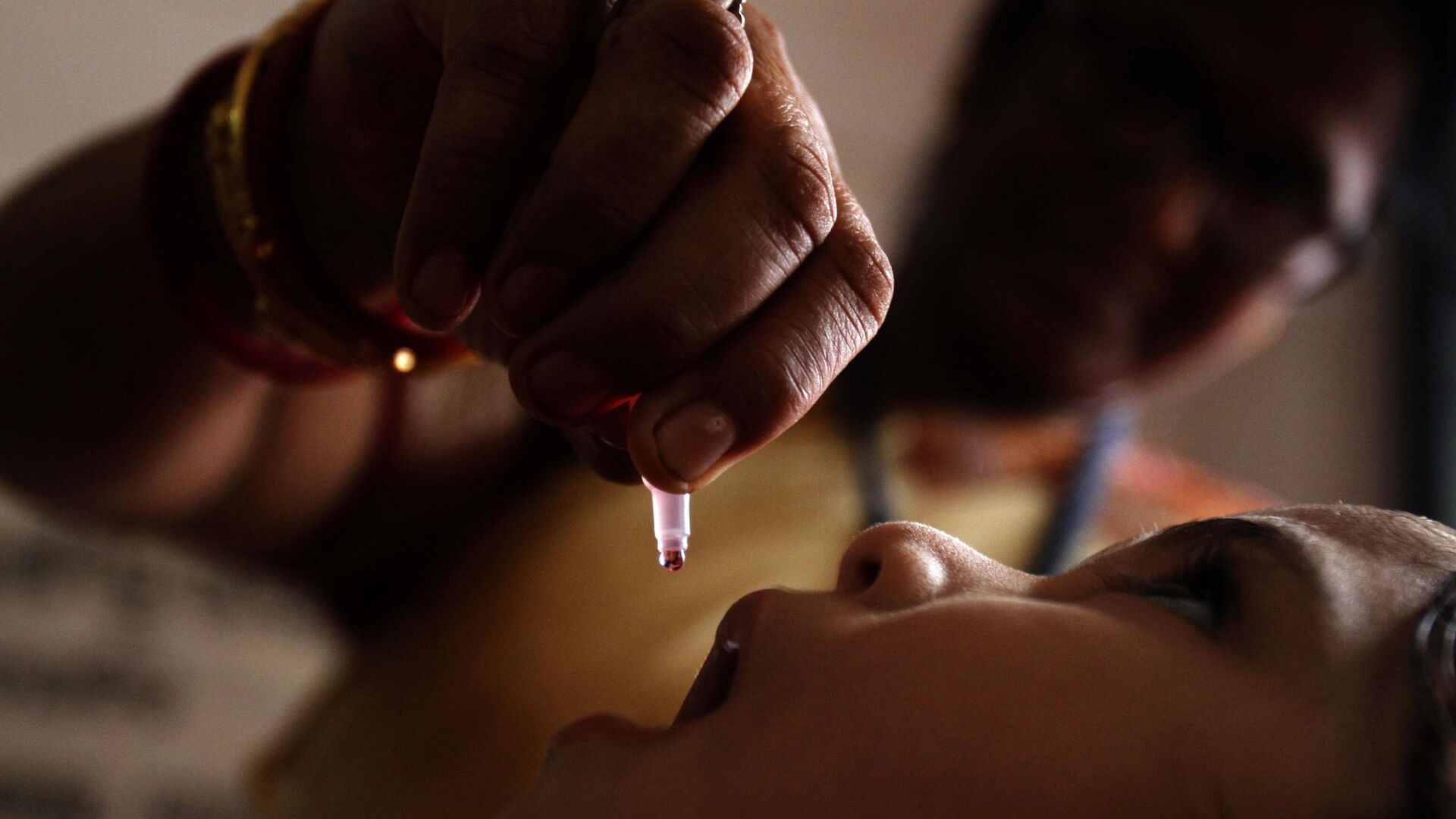https://sputniknews.in/20221213/low-socio-economic-status-contributes-to-measles-outbreak-17976.html
Low Socio-Economic Status Contributes to Measles Outbreak
Low Socio-Economic Status Contributes to Measles Outbreak
Sputnik India
The WHO recently reported that nearly 40 million children globally have missed out on the measles vaccine due to the COVID-19 pandemic. Since 2021, around nine... 13.12.2022, Sputnik India
2022-12-13T11:53+0530
2022-12-13T11:53+0530
2022-12-13T11:53+0530
south asia
sputnik opinion
https://cdn1.img.sputniknews.in/img/07e6/0c/0c/38345_0:46:3072:1774_1920x0_80_0_0_2bce18ac295e4566c8016ce8282369cc.jpg
India has witnessed an upsurge in measles cases recently, with the commercial city of Mumbai hit the hardest.According to the latest government data, the city has recorded over 700 cases and at least 16 deaths.Sputnik spoke with Dr. Asmita Mahajan, consultant neonatologist and pediatrician at S.L. Raheja Hospital in Mumbai, to find out why Mumbai is reporting the highest number of measles.Sputnik: Why, in the first place, are measles cases popping up rapidly, especially in Mumbai?Dr. Mahajan: Measles cases are cropping up, especially in Mumbai, because the vaccination drive remained incomplete due to the COVID-19 lockdown. Many children missed their routine vaccination against measles as parents avoided a visit to hospitals or clinics. This created a huge deficiency in vaccination coverage against measles.Sputnik: How serious is the issue on a global scale?Dr. Mahajan: All the unimmunized children were susceptible to the illness. Especially undernourished kids living in poor socio-economic and unhygienic conditions were more at risk. These exact areas are mainly where the outbreaks have occurred. Worldwide, the pandemic, poor vaccine coverage, overcrowding, and war-like situations are contributing to the measles outbreak. The number of measles cases reported worldwide has increased by 79% in the first two months of 2022 compared to last year. It's a worrying sign.Sputnik: Could there be any possible links between the spread of measles and the COVID-19 pandemic?Dr. Mahajan: There is no direct relation to COVID-19. However, if a child has had COVID-19 recently and hence their immunity is compromised, they are more likely to catch measles infection, especially if they are not vaccinated against the same.Sputnik: A number of media reports suggest that malnutrition acts as a catalyst for measles. What do you think?Dr. Mahajan: Malnutrition is a catalyst as a child has lower immunity. Also, the child is more likely to develop complicated measles, especially if they have missed out on their dose of the measles vaccine.Sputnik: Are there any socio-economic reasons behind the spread of measles?Dr. Mahajan: Low socio-economic status is a contributing factor in the areas where the outbreak has been seen. This is because lack of awareness, lack of education, poor hygiene and sanitation, and undernutrition are all directly related to the family's socio-economic status. Hence, measles is more common in these pockets of the city or communities.Sputnik: What immediate, mid-term, and long-term steps should the government take to curb the spread of measles?Dr. Mahajan: As immediate steps, the government has identified the patients. All doctors have been aware of this and how to report the cases. The patients must be immediately isolated and treated accordingly. Lastly, massive vaccination drives are being undertaken to cover all the children who have missed their normal doses or those at high risk. Children in the age group of six months to five years are at a high risk of getting the illness.
south asia
Sputnik India
feedback.hindi@sputniknews.com
+74956456601
MIA „Rossiya Segodnya“
2022
Deexa Khanduri
https://cdn1.img.sputniknews.in/img/07e6/0c/13/138923_52:0:533:481_100x100_80_0_0_cadf23d341691fc65ff2b22fd1afe584.jpg
Deexa Khanduri
https://cdn1.img.sputniknews.in/img/07e6/0c/13/138923_52:0:533:481_100x100_80_0_0_cadf23d341691fc65ff2b22fd1afe584.jpg
News
en_IN
Sputnik India
feedback.hindi@sputniknews.com
+74956456601
MIA „Rossiya Segodnya“
Sputnik India
feedback.hindi@sputniknews.com
+74956456601
MIA „Rossiya Segodnya“
Deexa Khanduri
https://cdn1.img.sputniknews.in/img/07e6/0c/13/138923_52:0:533:481_100x100_80_0_0_cadf23d341691fc65ff2b22fd1afe584.jpg
measles, measles outbreak in mumbai, measles outbreak in india, measles outbreak, india, who, world health organisation, socio economic condition, measles interview
measles, measles outbreak in mumbai, measles outbreak in india, measles outbreak, india, who, world health organisation, socio economic condition, measles interview
Low Socio-Economic Status Contributes to Measles Outbreak
Deexa Khanduri
Sputnik correspondent
The WHO recently reported that nearly 40 million children globally have missed out on the measles vaccine due to the COVID-19 pandemic. Since 2021, around nine million cases have been reported around the world.
India has witnessed an upsurge in measles cases recently, with the commercial city of Mumbai hit the hardest.
According to the latest government data, the city has recorded over 700 cases and at least 16 deaths.
Sputnik spoke with Dr. Asmita Mahajan, consultant neonatologist and pediatrician at S.L. Raheja Hospital in Mumbai, to find out why Mumbai is reporting the highest number of measles.
Sputnik: Why, in the first place, are measles cases popping up rapidly, especially in Mumbai?
Dr. Mahajan: Measles cases are cropping up, especially in Mumbai, because the vaccination drive remained incomplete due to the COVID-19 lockdown. Many children missed their routine vaccination against measles as parents avoided a visit to hospitals or clinics. This created a huge deficiency in vaccination coverage against measles.
Sputnik: How serious is the issue on a global scale?
Dr. Mahajan: All the unimmunized children were susceptible to the illness. Especially undernourished kids living in poor socio-economic and unhygienic conditions were more at risk. These exact areas are mainly where the outbreaks have occurred. Worldwide, the pandemic, poor vaccine coverage, overcrowding, and war-like situations are contributing to the measles outbreak. The number of measles cases reported worldwide has increased by 79% in the first two months of 2022 compared to last year. It's a worrying sign.
Sputnik: Could there be any possible links between the spread of measles and the COVID-19 pandemic?
Dr. Mahajan: There is no direct relation to COVID-19. However, if a child has had COVID-19 recently and hence their immunity is compromised, they are more likely to catch measles infection, especially if they are not vaccinated against the same.
Sputnik: A number of media reports suggest that malnutrition acts as a catalyst for measles. What do you think?
Dr. Mahajan: Malnutrition is a catalyst as a child has lower immunity. Also, the child is more likely to develop complicated measles, especially if they have missed out on their dose of the measles vaccine.
Sputnik: Are there any socio-economic reasons behind the spread of measles?
Dr. Mahajan: Low socio-economic status is a contributing factor in the areas where the outbreak has been seen. This is because lack of awareness, lack of education, poor hygiene and sanitation, and undernutrition are all directly related to the family's socio-economic status. Hence, measles is more common in these pockets of the city or communities.
Sputnik: What immediate, mid-term, and long-term steps should the government take to curb the spread of measles?
Dr. Mahajan: As immediate steps, the government has identified the patients. All doctors have been aware of this and how to report the cases. The patients must be immediately isolated and treated accordingly. Lastly, massive vaccination drives are being undertaken to cover all the children who have missed their normal doses or those at high risk. Children in the age group of six months to five years are at a high risk of getting the illness.


